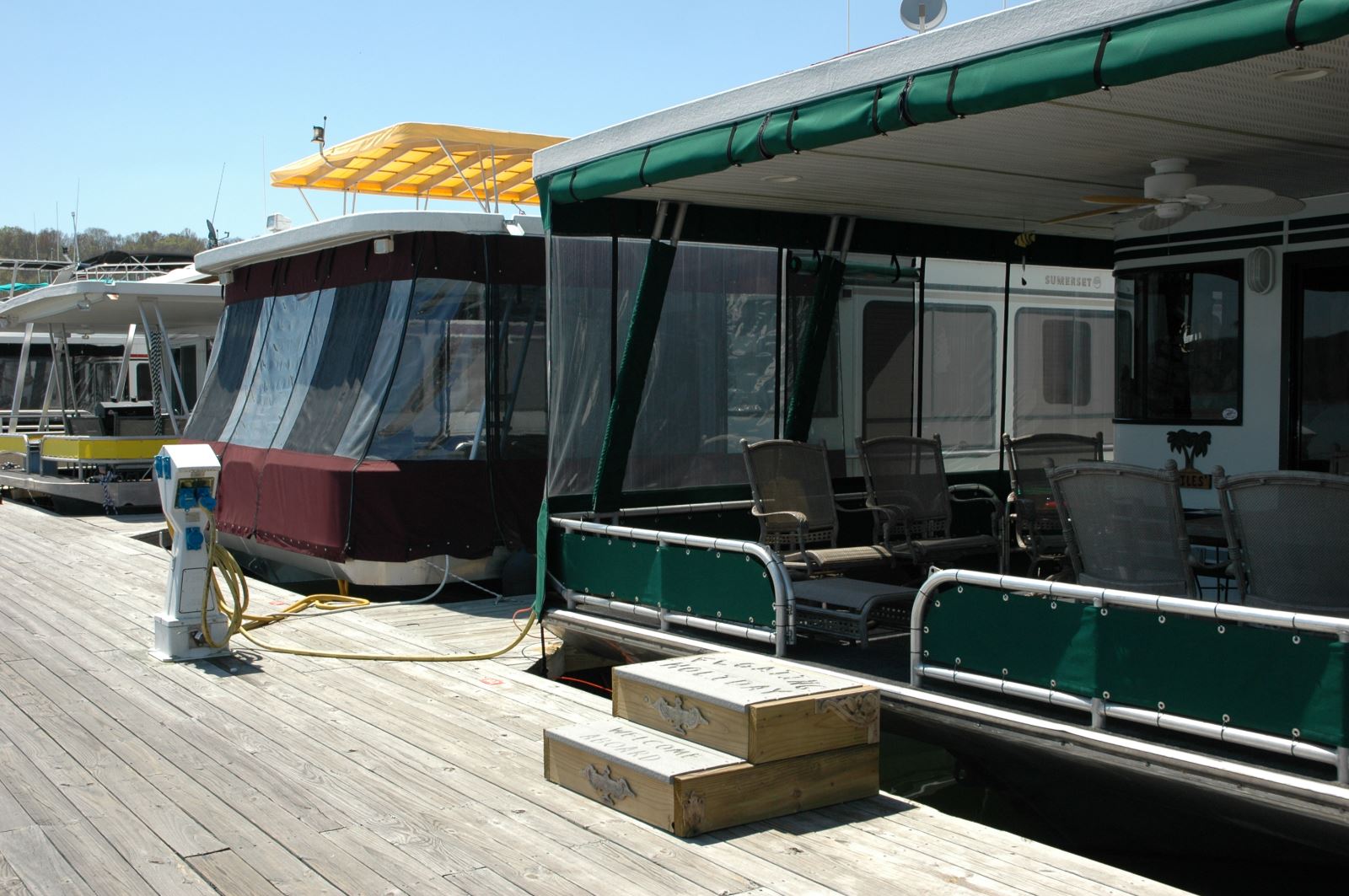
A houseboat liveaboard signed a two-year contract for a telephone service. Constantly on the move, he found better service elsewhere after his two years were up. However, the contract was with a company located in a state that enforces automatic renewals unless the customer takes the required steps to cancel. He was required to pay.
It’s always important to read before signing your name (or before clicking a box that says you agree with the terms). For houseboat liveaboards, it’s even more important because so many legalities come under state law. If your “home” address is in Florida and you have a contract with a Connecticut company for a houseboat manufactured in Tennessee, and you’re cruising from the Carolinas to Key West, things can get sticky.
Just in time for cruising season, here are tips on reading and understanding the fine print.
 “In my experience most consumers get in trouble not because they can't understand the fine print, but because they just don't read it,” observes Mark Chatow, a business attorney in Newport Beach, Calif.
“In my experience most consumers get in trouble not because they can't understand the fine print, but because they just don't read it,” observes Mark Chatow, a business attorney in Newport Beach, Calif.
Reading a long list of contract provisions can be daunting, but at least it gives boaters a fighting chance if they focus on some of the key provisions. From gym memberships to mobile phones, more and more consumer contracts used by liveaboards are on a subscription basis.
“With these contracts, the most costly provisions can often be the term [how long the contract is], and the termination [when and how it ends],” says Chatow. “Many consumers get trapped without realizing what they are signing up for. Taking a quick look at the term can help prevent you from getting into a longer commitment than you expect.”
Know when it expires, and what you must do about it. Auto renewal is one of the biggest traps, even though it’s not enforceable in some states.
TEST DRIVE THE 2016 PONTOON AND DECK BOAT MODELS AT PDB DAYS
 “Many subscription-based agreements have an automatic renewal clause that extends the contract for another 12 months or longer unless you don’t cancel it exactly as specified in the ‘notices’ provision of the contract,” adds Chatow.
“Many subscription-based agreements have an automatic renewal clause that extends the contract for another 12 months or longer unless you don’t cancel it exactly as specified in the ‘notices’ provision of the contract,” adds Chatow.
Typically, that’s 30 to 60 days before the expiration. If you don’t get it right, the contract automatically rolls over for another year or more and you’re stuck.
“I recommend that consumers learn when the cancellation notice is due when they first sign up, and then set a reminder for a few weeks before they have to cancel,” says Chatow. Before the end of the term you can cancel or, if you want to continue, negotiate with the cancellation department to get a better rate going forward.
Another trap is early termination fees: Some agreements look like they are month-to-month but the fine print may allow the company to charge you for quitting early. Check before you sign.
Kari Luckett is a financial expert and content strategist for CompareCards, a credit card comparison website. She suggests printing out a proposal. Then search for key words, highlight them and think it through.
 “Sometimes you have to cut through the verbiage and look for important buzzwords,” agrees Michael E. Gumprecht, whose law firm is in Woodstock, Ga. “Fortunately some key phrases are of legal significance due to warranties that are implied at law. Look for words excluding ‘warranty of merchantability’ or ‘fitness for a particular purpose.’ That means the product will conform to its description. For example, a car that will drive, a fridge that will keep cool or a lawn mower that will actually cut.”
“Sometimes you have to cut through the verbiage and look for important buzzwords,” agrees Michael E. Gumprecht, whose law firm is in Woodstock, Ga. “Fortunately some key phrases are of legal significance due to warranties that are implied at law. Look for words excluding ‘warranty of merchantability’ or ‘fitness for a particular purpose.’ That means the product will conform to its description. For example, a car that will drive, a fridge that will keep cool or a lawn mower that will actually cut.”
If this has been disclaimed, Gumprecht says, you might inadvertently buy something in a buyer-beware or as-is condition.
Understand not just the words, but their definition advises Chantay Bridges, a coach and realtor in Los Angeles, Calif.
“For example, when requesting your credit report the terms vantage score and fico score are used. Know the difference and what means what,” says Bridges. If you don’t know FICO is your real score and vantage is estimation, she says, you won’t understand what you are reading even if you read the fine print.
Also know whom you are doing business with, Bridges advises. Is this transferrable? Will a third party be involved? Who is the actual owner? Do they have the right to change the terms? How often?
Bottom line: to assure smooth sailing, read the fine print.
About the Authors
“Living Aboard” is a recurring column that focuses on living on your houseboat. Gordon and Janet Groene lived full-time on the go for ten years and they hold the NMMA Directors Award for boating journalism. Janet posts new galley recipes weekly at www.BoatCook.blogspot.com.